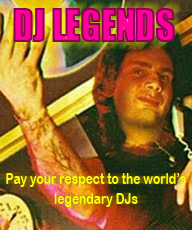Universities for music?
Universities for music? Posted on: 30.09.2012 by Iluminada Vandevoort I'm currently in a self debate regarding my current major, I go to a community college and have finished all my general ed classes and what not, so I'm on the verge of transferring to a 4 year university in no time. I was wondering if there were any universities centralized/ have a strong program for music (for digital production, music theory, etc) in the United States? | |
| Darlene Strohbeck 01.10.2012 |
Originally Posted by mostapha
I studied music production and engineering. Halfway through when I realized how futile the job market was, I sold out and took a corporate job that was offered to me, because my mama didn't raise no fool. Luckily my parents paid for it so I wasn't in debt when I got out too. |
| Romelia Stankard 01.10.2012 |
Originally Posted by mostapha
|
| Stanley Topoleski 01.10.2012 |
Originally Posted by mostapha
|
| Iluminada Vandevoort 30.09.2012 | I'm currently in a self debate regarding my current major, I go to a community college and have finished all my general ed classes and what not, so I'm on the verge of transferring to a 4 year university in no time. I was wondering if there were any universities centralized/ have a strong program for music (for digital production, music theory, etc) in the United States? |
| Darlene Strohbeck 01.10.2012 |
Originally Posted by mostapha
I studied music production and engineering. Halfway through when I realized how futile the job market was, I sold out and took a corporate job that was offered to me, because my mama didn't raise no fool. Luckily my parents paid for it so I wasn't in debt when I got out too. |
| Ervin Calvery 01.10.2012 | A lot of this advice seems great, but there are definitely more schools in the US that have killer programs. Bard College. There's also Bard's Conservatory of Music as well as the Longy School of Music.\ CalArts. NYU. Columbia University. Northwestern University. Carnegie Mellon. Peabody / Johns Hopkins. Oberlin. (Oberlin has a conservatory as well) |
| Dorie Scelzo 01.10.2012 | BTW, that advice comes from having gotten an unpaid internship in the spring at one of the biggest studios in Atlanta, though because of the rest of the story, I won't say which one. I consider it a valuable experience. I learned a lot; I met some interesting people; I got to play with SSL (Solid State Logic, not Serato Scratch Live) boards worth hundreds of thousands of dollars and outboard gear most people here would dream about with a total value in the millions. I learned how painstaking it is to set up to record a drum kit and how finicky some vocalists are. And I heard some pretty cool music, some of which hasn't been released yet. But the vast majority of what I did was vacuuming, cleaning bathrooms, food runs, watering plants, organizing cables, and trying to look busy so that maybe someone would reward my hard work. One of the engineers did, and I got to sit in on some sessions and help out a little bit so long as everything I did was with a mind to making sure artists didn't know I existed and as long as I wasn't on the clock when it happened……even more time away from making money. It was also a 30-minute commute, unpaid, and stressful. And, honestly, I have no idea why I was "fired". Most people seemed happy with me, then all of a sudden I wasn't on the schedule, my user wasn't on the scheduling system, and they wouldn't even let me into the storage room to pick up my man purse, a pack of cigarettes, and my french press. And no one would talk to me. Apparently that's kind of standard practice for that studio when they decide to get rid of interns. As far as I can tell, the worst thing I did was ask for a day off a week and a half in advance because of a prior commitment when none of the interns I had contact info for could cover for me. A lot of it was probably because I started at the same time as a few other people who worked just as hard as I did but had degrees from SAE. Which is sad. From the engineers that have several platinum albums under their belts in several genres, the only thing that studio really offers is really good rooms and engineers that can teach noobs that nothing they learned in school matters as long as they understand signal flow and know what all the knobs on EQs, preamps, compressors, etc. do, which you can learn by playing with free software and reading a lot. If you want a job in the industry, school can give you a leg up. But make sure you can afford it. If you want to be a musician, learn it yourself and focus on your art. Worst case, you can work with someone (like me or a dozen other people on DJTT, DJF, ALDJF, and elsewhere) who might know the tools better than you do and probably have more experience with mixdowns/mastering and maybe have a better sounding room to listen to stuff in……but maybe aren't as great at actually writing songs. |
| Romelia Stankard 01.10.2012 |
Originally Posted by mostapha
|
| Stanley Topoleski 01.10.2012 |
Originally Posted by mostapha
|
| Shonda Soulier 02.10.2012 | Check out Belmont University in Nashville. It's a 4-year school, very good school too. http://www.belmont.edu/music/index.html Plus, you're in Nashville so you'll be able to get a lot of connections with producers, audio engineers, artists, etc. |
| Dorie Scelzo 02.10.2012 | Most 4-year Universities have a music program of some kind, whether or not it has classes focused on electronic music production is a crap shoot. But they will have things that will help you (music theory, recording, etc.). Dedicated music production & recording schools are largely both a joke and necessary if you want a job in the field (believe: working in a studio as a recording engineer). The problem is that there's more of a market for the school than the jobs it gets you. If you get a "degree" in recording, you'll likely end up buried under debt and fighting for unpaid internships that consist largely of getting coffee and making food runs, in the hopes that you make enough friends that they'll maybe give you a chance. If you really want to be a recording engineer, that's the way things go. If you want to be a musician, I believe the best thing to do would be to study something that you enjoy but that is fundamentally different from music as a career, while pursuing music on your own time and taking classes (if available) on performance, composition, theory, etc.. Learn an instrument or two. Join a chorus or glee club. Take some recording classes. They can't hurt. And if you blow up and have a chance at music, you can decide whether to pursue it or not. |
| Layne Koop 01.10.2012 | Avoid any for-profit universities. They (almost) never represent good value for money. Most major universities that offer Music as a major will be "more than good enough" for you to have a career in music. What area of the country do you want to live in? What "other" things might you be interested in doing during those years of your life? If you want to produce a particular genre of EDM...then picking a place that has clubs playing that kind of music might be helpful. Are there any of the larger music festivals that you want to attend....picking a place near those festivals will help make it easier to attend. Are there touring acts that you want to see while in school...check the tour schedules and plan accordingly. |
| Stanley Topoleski 01.10.2012 | Check out SAE... they have everything. And are international |
| Antonetta Wikel 30.09.2012 | http://www.berklee.edu/ Otherwise you're looking at a specialty school like Art Institute or Full Sail. |
<< Back to General DiscussionReply



